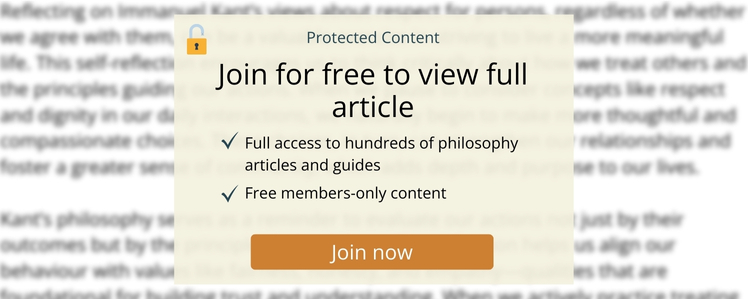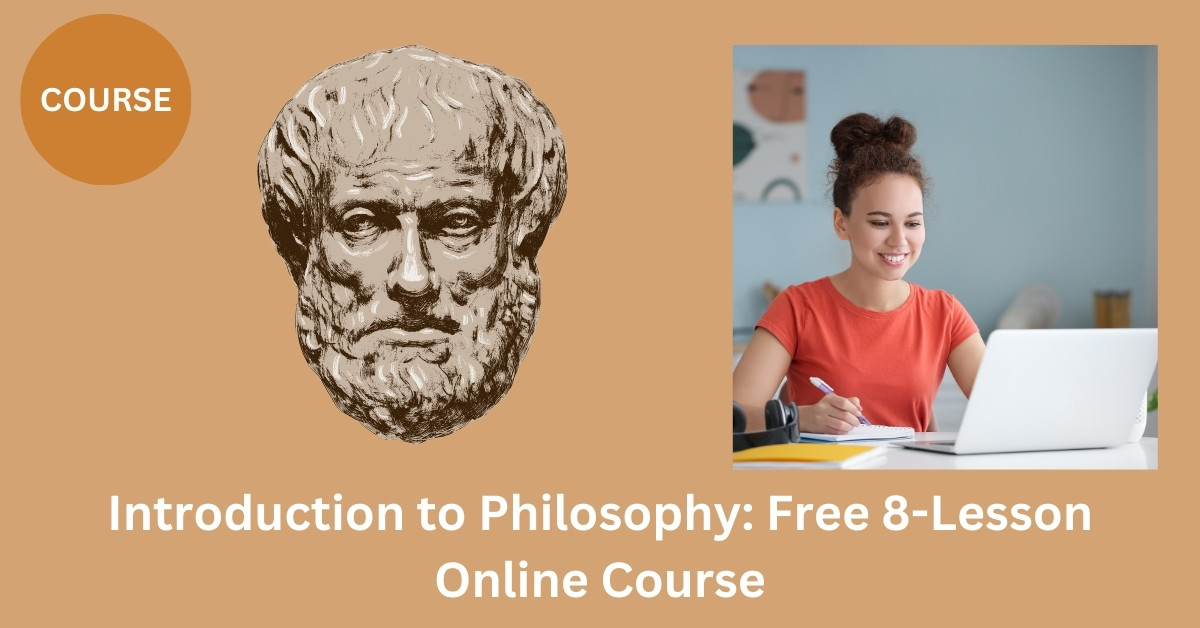Philosophy often serves as a guide for those striving to lead a more meaningful life. However, a key concept in Epicurean philosophy, known as the Epicurean paradox, is not always well understood. This logical dilemma questions how evil can exist in a world governed by benevolent and omnipotent gods. Understanding this idea is crucial, as it sheds light on the broader principles of Epicurean thought and enhances our ability to use philosophy as a tool for meaningful living. This article will examine the foundations of Epicurean philosophy, the significance of the Epicurean paradox, and their importance in the philosophical quest for a more fulfilling life.
Key features of Epicurean philosophy
Epicurean philosophy, founded by the Greek thinker Epicurus, focuses on achieving a happy and tranquil life by seeking pleasure and avoiding pain. However, it does not endorse indulgence in excessive luxury or harmful pleasures. Instead, Epicurus emphasized simple living, appreciating what you have, and forming meaningful relationships. He believed that most of life’s troubles come from unnecessary desires and fears, such as fear of death or divine punishment.
Central to his teachings is the pursuit of ataraxia, a state of inner calm and freedom from distress, and aponia, the absence of physical pain. Epicurus advocated for rational thinking, self-control, and understanding the world through reason and observation rather than superstition. Friendship was also highly valued, as he regarded it as one of the primary sources of happiness.
Epicureanism encourages people to focus on what truly brings peace and joy in life, rather than being consumed by material wealth or ambition. By practising moderation and mindfulness in daily choices, Epicurus believed individuals could lead a fulfilling and content life. Though often misunderstood as a philosophy of indulgence, at its core, it promotes simplicity, balance, and serenity.
What is the Epicurean paradox?
Epicureanism, a philosophical system established by Epicurus, addresses the nature of the gods and their relationship with humans and the universe. Central to this view is the idea that the gods exist but are detached from human affairs and do not interfere with the world. They live in a state of perfect bliss and tranquillity, free from concerns or passions. This understanding underpins the Epicurean position on the issue of evil and the gods’ role in addressing it.
According to Epicureans, the gods should not be seen as beings responsible for the creation or prevention of suffering. Their philosophy suggests that attributing human qualities, such as benevolence or the desire to intervene in mortal matters, to the gods is a misrepresentation of their nature. For Epicureans, the existence of evil is not inconsistent with the gods’ existence because the gods are not involved in human struggles or the governance of the universe. This detachment emphasizes that suffering and misfortune are aspects of the natural world, not the result of divine will or oversight.
Epicureanism encourages people to focus on understanding the material workings of the world and finding peace through the cultivation of wisdom and self-sufficiency, rather than relying on divine intervention. This perspective shifts responsibility away from the gods and places it within the framework of natural causes and human experiences.
This idea can be demonstrated through the following example. Imagine an individual pondering the nature of suffering in a world governed by gods who are both all-powerful and entirely good. They observe natural disasters, illness, and human cruelty, leading them to question how such gods could allow for these circumstances. The person reflects on the seeming contradiction between the existence of evil and the nature of these divine beings. This dilemma becomes more personal as they consider their own struggles and the suffering of those around them. They might ask whether the gods choose not to prevent evil or lack the power to do so. Through this introspection, the individual is led to challenge long-held beliefs, sparking further questions about the nature of divinity and the universe.
Challenges to the Epicurean paradox
Several philosophers have objected to or rejected Epicureanism’s position regarding the logical dilemma about the existence of evil in the presence of benevolent and omnipotent gods, commonly known as the Epicurean paradox. One major reason stems from differing theological perspectives. Many theistic philosophers argue that the apparent presence of evil in the world does not necessarily contradict the existence of benevolent and omnipotent gods. Instead, they offer alternative explanations, such as the idea that evil or suffering could serve a greater purpose, such as moral growth, free will, or the development of virtues like courage and compassion. These philosophers assert that human understanding is limited, and what seems like evil to us may have a higher, divine justification that escapes human reasoning.
Another point of contention arises from the way Epicureanism frames the logical dilemma. Critics argue that the paradox assumes a simplistic relationship between divinity and earthly occurrences, failing to account for nuanced theological doctrines. For example, certain traditions propose that gods operate beyond human conceptions of time, morality, or causation, which invalidates the premise that they should intervene in every instance of evil. By questioning the assumptions underlying the paradox, these critics maintain that the dilemma oversimplifies a complex issue and falsely portrays a logical inconsistency.
Additionally, some philosophers critique the paradox on ethical and existential grounds. They believe that focusing too heavily on the problem of evil leads to a fatalistic or dismissive attitude toward human responsibility. From their perspective, emphasizing divine involvement in addressing evil diminishes the importance of human agency and moral action. These thinkers argue that it’s more productive to explore how people can address and mitigate suffering instead of relying on divine intervention as a solution to these challenges.
Ultimately, objections to the Epicurean paradox reflect a diverse set of philosophical and theological perspectives. These criticisms highlight the complexity of questions about morality, suffering, and divine nature, demonstrating that the discussion remains open to various interpretations and beliefs.
Why the logical dilemma questioning the existence of evil in the presence of benevolent, omnipotent gods (the Epicurean paradox) is important to Epicurean philosophy
Understanding the concept of the logical dilemma, which questions the existence of evil alongside benevolent, omnipotent gods (known as the Epicurean paradox), is crucial to comprehending Epicurean philosophy.
- The Epicurean paradox encourages critical thought and questioning.
By presenting a logical dilemma about the existence of evil alongside the concept of omnipotent and benevolent gods, the paradox challenges people to think deeply about the nature of the divine and its relationship to the human experience. This focus on questioning encourages individuals to consider alternative explanations for the presence of suffering and imperfection in the world, fostering a mindset of inquiry rather than blind acceptance. It highlights the importance of using reason and evidence when examining complex philosophical ideas, which is central to many schools of thought.
- It helps frame the discussion on the limits of human understanding.
The paradox pushes us to confront the limits of what we can know and understand about ultimate truths in life and religion. By presenting a scenario that seemingly pits reason against faith, it opens the door to exploring how much we can presume to know about divine intentions. At the same time, it allows for discussions on whether the existence of evil or suffering requires a reevaluation of our assumptions about the world and the divine. This makes the paradox a tool for exploring humility and perspective within philosophical debates.
- The paradox connects philosophy to practical human concerns.
Rather than being an abstract discussion, questioning why evil exists and how it relates to divinity ties directly into daily human experiences of hardship, morality, and ethics. Addressing such a dilemma brings philosophical discussion into real-world relevance, as it tackles issues like suffering, justice, and the nature of good and evil. This connection demonstrates how philosophy can offer frameworks to reflect on life’s most challenging questions and provide guidance on approaching difficult realities.
Contrasting Epicurean philosophy with Aquinas’ philosophy
The Epicurean paradox presents a logical dilemma about the existence of evil in a world governed by benevolent, omnipotent gods. It questions how such gods can permit suffering and injustice, suggesting either a limitation in their power or a lack of true benevolence. This view reflects Epicurean skepticism toward the traditional notion of divine intervention, emphasizing a naturalistic perspective on the universe.
Thomas Aquinas, on the other hand, approaches the problem of evil from a theological standpoint rooted in Christian doctrine. Aquinas argues that the existence of evil is not incompatible with an all-powerful, all-good God. Instead, he views evil as a byproduct of free will, given to humans by God out of love. According to his philosophy, suffering and evil can serve a greater purpose, ultimately contributing to the divine plan and providing opportunities for moral growth and exercising virtue.
The key difference lies in the perspectives these philosophies offer. Epicureanism challenges the very coherence of omnipotent and benevolent gods, leaning toward a more secular and human-centered understanding of the world. Aquinas, in contrast, reconciles the presence of evil with the existence of God by framing it within a broader theological and moral framework. This distinction underscores the contrasting goals of the two philosophies—Epicureanism seeks to explain phenomena without relying on divine causation, whereas Aquinas works to affirm the compatibility of faith and reason.
The Epicurean Paradox, Epicurean philosophy and the meaning of life
Reflecting on philosophical ideas, like those posed by the Epicurean paradox, can have a profound impact on how we approach our own lives. Even if one does not align with the views presented by Epicureanism, the importance of questioning, thinking critically, and challenging assumptions still applies. Engaging with such reflections encourages us to examine the nature of good and evil, the role of adversity, and the broader meaning of our lives. It pushes us to understand our beliefs, uncover any unexamined biases, and cultivate personal resilience in the face of life’s challenges.
By contemplating ideas like the Epicurean paradox, we are prompted to consider how to approach suffering and conflict in our personal lives. Instead of seeking an ultimate explanation for why bad things happen, this reflection reminds us to focus on what is within our control. How do we respond to difficulties? How can we create meaning and joy despite them? These are practical questions that help shape a life of purpose and balance, regardless of one’s stance on the paradox itself.
Furthermore, philosophical inquiry invites personal growth by encouraging us to think beyond surface-level concerns. Reflecting on life’s deeper questions can inspire gratitude for the positive aspects of existence while motivating us to take action to improve what we can. It reminds us that life is as much about perspective and interpretation as it is about external circumstances. Whether we perceive struggles as opportunities for growth or sources of despair can significantly influence the quality of our lives.
Ultimately, examining these profound and abstract questions can help us develop a mindset of curiosity, empathy, and patience. It teaches us not to shy away from complexity but to engage with it thoughtfully. Living meaningfully often involves navigating uncertainty, and philosophical reflection equips us with the mental tools to do so. Even if we don’t arrive at definitive answers, the process of exploring these ideas can clarify what truly matters to us and guide how we wish to live.


